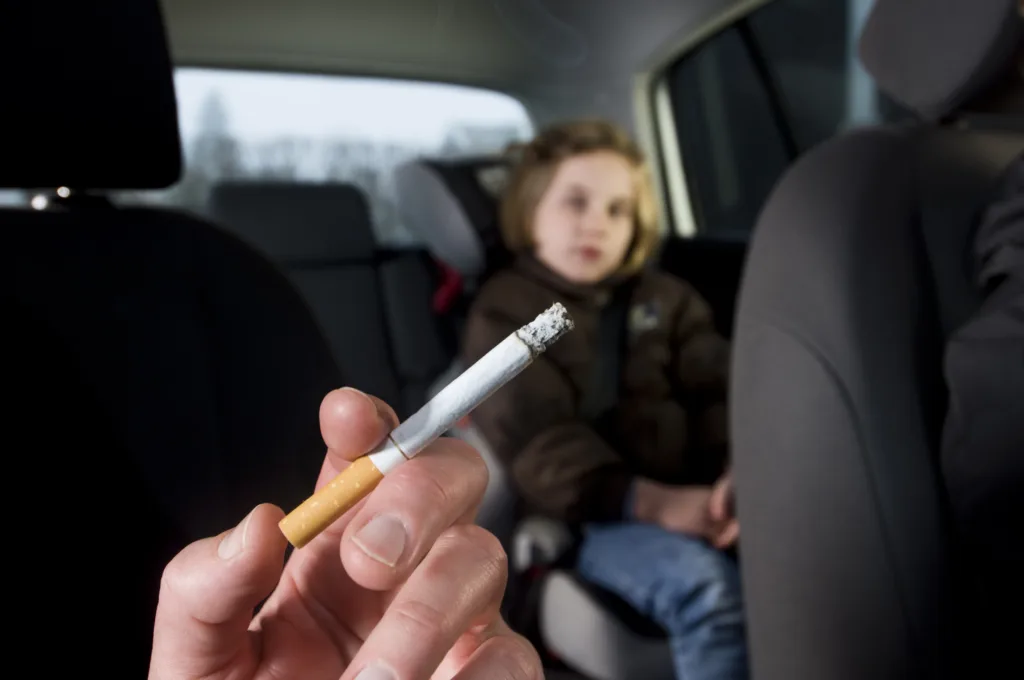We often think of smoking as a personal choice with individual consequences, but the reality is that tobacco smoke affects everyone nearby—especially when it comes to heart health. Secondhand smoke, also known as passive smoke, is a serious cardiovascular risk that can lead to heart disease, stroke, and a host of other life-threatening conditions. Even brief exposure can cause immediate harm, making public awareness and prevention crucial. In this blog, you’ll learn more about how secondhand smoke affects the heart, who is most at risk, and how to protect yourself and your loved ones from the health implications that come with secondhand smoke.
How secondhand smoke affects the heart
According to the US Centers for Disease Control and Prevention (CDC), exposure to secondhand smoke increases the risk for coronary heart disease and stroke. In fact, each year in the United States, secondhand smoke causes nearly 34,000 deaths from coronary heart disease, and more than 8,000 deaths from stroke among nonsmokers.
Breathing in secondhand smoke can raise your risk of having a stroke by 20 to 30 percent. Secondhand smoke can even increase the risk of heart attack by making the blood sticky and damaging blood vessels.
Health implications associated with secondhand smoke
Increased risk of heart disease
According to the American Heart Association, nonsmokers exposed to secondhand smoke have a 25 to 30 percent increased risk of developing heart disease compared to those who were not exposed. Secondhand smoke contains more than 7,000 chemicals, hundreds that are toxic and at least 70 cause cancer. These toxic chemicals contribute to inflammation, oxidative stress and plaque buildup in the arteries, all of which raise the risk of heart attacks and strokes.
Raised blood pressure and heart rate
Even a short exposure to secondhand smoke can cause immediate spikes in blood pressure and heart rate. Nicotine and carbon monoxide interfere with the cardiovascular system, reducing oxygen supply and making the heart work harder to circulate blood, says the National Heart, Lung, and Blood Institute.
Promotes artery damage
According to the World Health Organization, studies show that inhaling secondhand smoke reduces the elasticity of blood vessels, making them more prone to hardening and narrowing—a process called atherosclerosis. This condition can lead to heart attacks, strokes and other cardiovascular complications.
Increased blood clot risk
The CDC states secondhand smoke exposure can make blood stickier, increasing the likelihood of clot formation. These clots can block blood flow to the heart or brain, leading to heart attacks or strokes.
Who is most at risk?
- Children and infants: The U.S. Surgeon General says children exposed to secondhand smoke have a higher risk of developing heart-related issues later in life. It also increases their chances of respiratory infections and sudden infant death syndrome.
- People with existing heart conditions: According to the American Heart Association, those with high blood pressure, high cholesterol or a history of heart disease are at an even greater risk of cardiovascular events from secondhand smoke exposure.
- Pregnant women: Exposure to secondhand smoke during pregnancy can lead to complications such as low birth weight, premature birth and an increased risk of congenital heart defects in newborns, says the World Health Organization.
How to protect yourself and others
Avoid smoke-filled areas
Stay away from places where smoking is allowed, including certain public spaces, restaurants and bars.
Make your home and car smoke-free
The CDC reports that no level of secondhand smoke exposure is safe, so keeping your living and transportation spaces smoke-free is essential.
Encourage loved ones to quit smoking
If a family member smokes, encourage them to quit by offering support and resources.
Educate others
Many people still underestimate the dangers of secondhand smoke. Sharing information can help protect more people from unnecessary exposure.
The benefits of eliminating secondhand smoke exposure
There are many benefits from eliminating secondhand smoke exposure, and some of the benefits can rapidly improve your health. According to the American Heart Association, within 30 minutes of avoiding secondhand smoke, blood vessels begin to function better. Just within a few months, heart disease risk begins to decrease. Additionally, after one to two years, the World Health Organization says the risk of heart disease of someone exposed to secondhand smoke significantly declines.
In conclusion, secondhand smoke isn’t just an inconvenience—it’s a serious health threat that increases the risk of heart disease, strokes, heart attacks and high blood pressure. Protecting yourself and your loved ones from exposure can lead to better heart health and a longer life. By promoting smoke-free environments and encouraging tobacco cessation, we can make a lasting impact on public health and save lives.
Maxim Healthcare Services provides home healthcare services through over 150 offices around the country. Our dedicated caregivers provide compassionate and patient-centered skilled and personal care services in the comfort of home. If you or a loved one is suffering from a heart ailment or related symptoms, we are here to help. Contact your local Maxim office to learn more about the services available in your area. To learn more about how homecare can help manage heart ailments, read our blog about private duty nursing for heart ailments.

